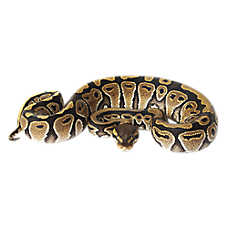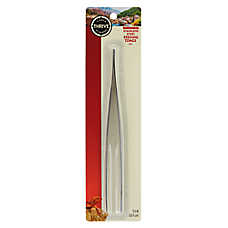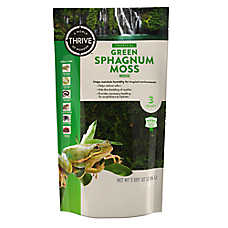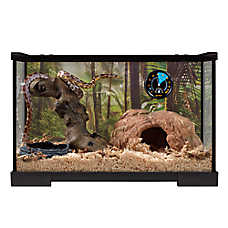Ball Python Care Guide
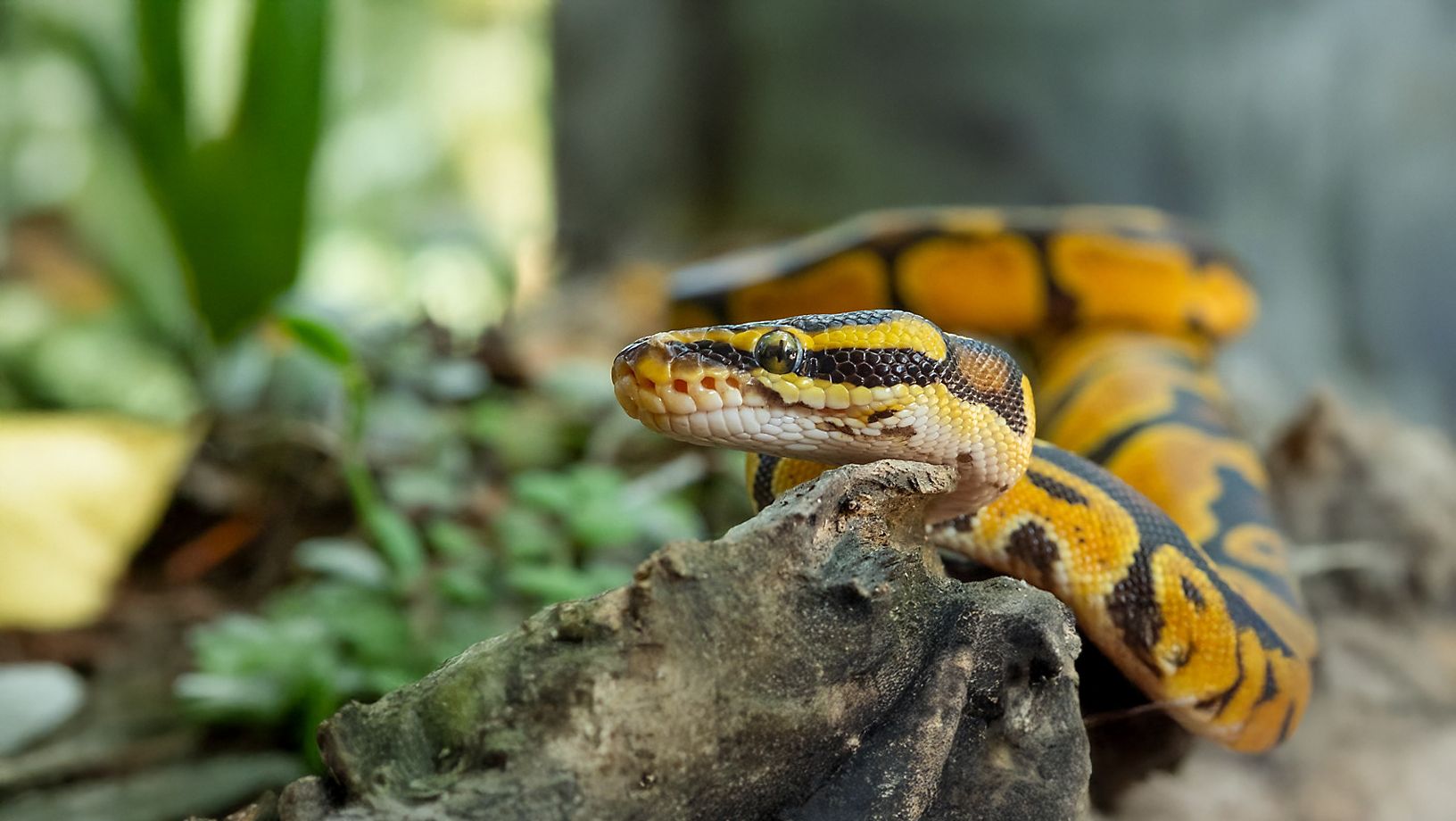
In this Article
4 things to know about your ball python
- They were once called Royal Pythons because royalty used to wear live pythons as jewelry
- They have 100-150 sharp teeth in their mouth
- Heat-sensing pits in their upper jaw help them find prey in complete darkness
- Pythons have tiny leg bones buried behind their muscles toward their tail ends that are considered vestigial limbs, they now serve no purpose
How do I set up my ball python’s home?
Adult pythons should live alone in a terrarium that’s at least 40 gallons (151 L) in volume and has a secured, screened lid.
What do I put in my python’s terrarium?
- Line the bottom of the terrarium with 2 inches (5 cm) of bioactive soil/substrate. Scoop the poop frequently and treat your snake to fresh substrate as needed (at least once a month).
- Provide a wide water dish for your snake.
- Create at least two hiding spots in the terrarium, one on the warmer side and one on the cooler side. This allows your snake to choose what temperature it would like to hide in. It is recommended to add moist sphagnum moss to the hide on the warm side to create a humidity hide. This will help facilitate healthy shedding and normal behaviors.
- Make sure nothing in your snake’s tank will wobble or topple when your pet slithers over it.
Heat & lights
- Your python’s terrarium should have two microclimates. During the day, your python likes the temperature between 80 and 90 F (27-32 C) on the warm side of the tank, and between 70 and 80 F (21-27 C) on the cool side. At night, the whole tank should be between 70 F and 80 F (21-27 C). An undertank heat mat or ceramic heat emitter will keep the warm end at the right temperature and a thermometer at each end will help you regulate the habitat overall.
- The habitat humidity should be between 30% and 50%. Use a hygrometer — a device that measures humidity — to keep track
- Tips to increase humidity:
- Add a humid hide—a hide with moss inside that has been misted
- Increase length of misting as well as frequency
- Change bedding to something that retains moisture such as bioactive soil/substrate - Pythons need light that mimics day and night. Some recent studies show that use of a low-wattage UVA/UVB bulb to mimic daylight for 12 hours a day can benefit ball pythons.
- At night, switch to a ceramic heat emitter or other heating element with no light to provide heat with a minimum disturbance to your Ball Python.
What do ball pythons eat?
Ball pythons are carnivores and should be fed thawed frozen rodents. Warm and thaw the rodent according to package directions, before offering it to your pet at mealtime. Feed your snake once a week at nighttime, using tongs. Some adult snakes may not eat for several weeks at a time; they may also skip feedings during shedding or due to habitat temperature change. It is generally recommended to closely monitor your python’s weight during time of decreased appetite and if you notice the weight starts to drop OR if your pet skips more than two meals, contact your veterinarian for advice.
Ball pythons drink from large shallow dishes and will also soak in their water dish, to maintain hydration. Be sure to empty, clean and refill their water dish every day.
How can I keep my python healthy?
Try not to handle your python for three or four days to give your new pet a chance to get acclimated to new surroundings. Whether your snake is new or settled-in, be sure to contact a veterinarian with reptile experience for annual physical exams or if you notice any of these symptoms:
- More time spent hiding
- Eating or drinking less; weight loss
- Shedding problems – snakes should shed in one piece
- Discolored skin
- Abnormalities with the eyes, nose or mouth
- Runny or abnormal droppings for more than two days
- Lack of droppings for more than a month
PET SAFETY TIPS
- ALL ANIMALS can potentially carry viral, bacterial, fungal, and parasitic diseases contagious to humans.
- Thoroughly wash your hands with warm, soapy water before and after contact with any pet or its habitat.
- Adults should assist children with hand washing after contact with a pet, its habitat or aquarium water.
VET ASSURED™
Pets purchased at PetSmart are part of our exclusive Vet Assured™ program, designed by PetSmart veterinarians to help improve the health and well-being of our pets.
Our vendors meet a high standard in caring for pets and screening them for common illnesses. This program also includes specific standards for in-store pet care.
PETSMART PROMISE
If your pet becomes ill during the initial 14-day period, or if you’re not satisfied for any reason, PetSmart will gladly replace the pet or refund the purchase price.
